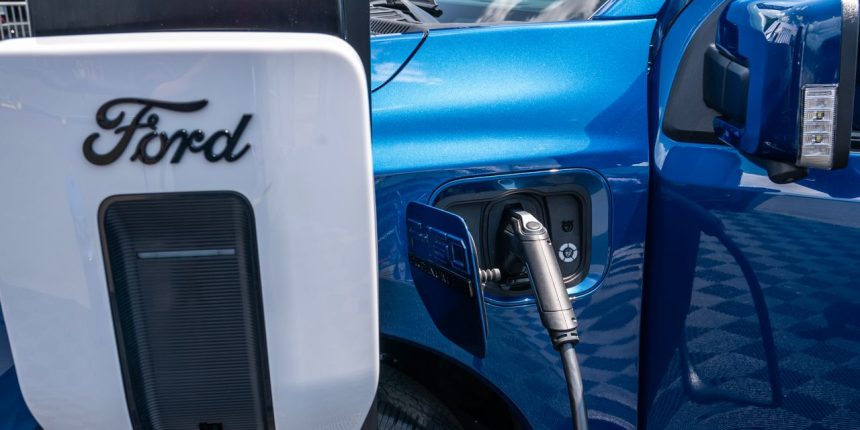The Biden administration will make $12 billion available in grants and loans for car and truck manufacturers and suppliers to retrofit factories to produce electric vehicles and other advanced models, Energy Secretary Jennifer Granholm announced Thursday.
President Joe Biden will also offer $3.5 billion in funding to domestic vehicle-battery manufacturers, Granholm said. Part of the total funding announced Thursday will come from the Inflation Reduction Act and the rest from the Department of Energy’s existing loan programs.
Biden has set a target for half of all new vehicles sold in the U.S. in 2030 to be zero-emissions vehicles, including battery-electric
TSLA,
GM,
plug-in hybrid gas/electric
TM,
and fuel-cell electric vehicles.
Earth-warming greenhouse-gas emissions from transportation account for about 29% of total U.S. emissions, making that sector the largest contributor to total U.S. greenhouse-gas emissions. Climate change caused by the burning of fossil fuels
CL00,
is contributing to dangerously warm ocean temperatures, droughts and other severe weather events.
Read: Hurricane Idalia: Florida storm is 2023’s costliest U.S. disaster so far
The DOE funding announcement comes as Biden has faced criticism from both the automobile industry and its union workforce over the speed of the shift to EVs from gasoline-powered options. The largest union representation is in the United Auto Workers, whose membership earlier this month approved a strike should current contract negotiations with major automakers fail.
Read: ‘I have a pension; they don’t’: Why United Auto Workers are fighting to end a two-tier system for wages and benefits
Both sides in those negotiations have said proposed environmental rules aimed at helping usher in the EV era are challenging. Automakers point to expected retooling costs, even as many have already swapped product offerings to include EV designs. The UAW, meanwhile, says the impending changes put union workers at a disadvantage. The UAW has warned that such a rapid change could put thousands of jobs in Michigan, Ohio, Illinois and Indiana, in particular, at risk.
The threat, they believe, is that more nonunion workers and smaller workforces could come with the shift to EVs, which have fewer parts and more software-based functionality and, experts have said, are simpler to manufacture by several orders of magnitude. That also makes their maintenance cheaper for drivers in the long run.
Ford
F,
CEO Jim Farley has said producing electric vehicles requires about 40% less labor than producing the same number of gas-powered cars.
EV-linked job growth to date has largely been in the Southern U.S., where automobile jobs are also more likely to be nonunion.
Read the full article here




